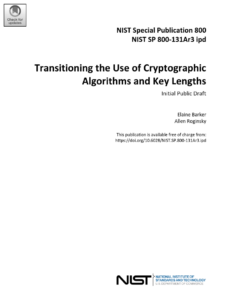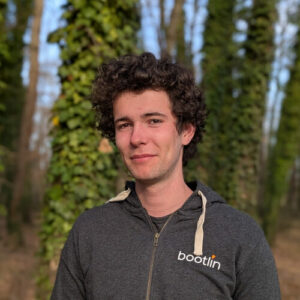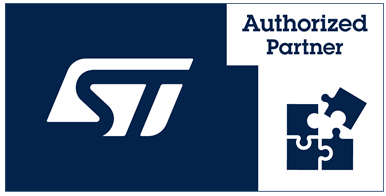As part of a partnership with the eBPF Foundation, Bootlin engineers Bastien Curutchet and Alexis Lothoré are working with the kernel community in order to improve eBPF support in the kernel on different aspects. This post is the first one of a series highlighting this effort. For those who need to catch up with the eBPF technology, you can take a look at our “Linux Debugging, tracing and profiling” training course which has been recently updated with eBPF basics !
partnership with the eBPF Foundation, Bootlin engineers Bastien Curutchet and Alexis Lothoré are working with the kernel community in order to improve eBPF support in the kernel on different aspects. This post is the first one of a series highlighting this effort. For those who need to catch up with the eBPF technology, you can take a look at our “Linux Debugging, tracing and profiling” training course which has been recently updated with eBPF basics !
Bootlin at Netdev 0x19, THE Technical Conference on Linux Networking
 The Netdev conference is THE annual event dedicated to Linux networking, featuring numerous talks, presentations, and discussions on all aspects of network support in the Linux kernel and ecosystem. It takes place this year on March 10-13 in Zagreb, Croatia.
The Netdev conference is THE annual event dedicated to Linux networking, featuring numerous talks, presentations, and discussions on all aspects of network support in the Linux kernel and ecosystem. It takes place this year on March 10-13 in Zagreb, Croatia.
Given the importance of these topics to Bootlin, our engineers Köry Maincent and Romain Gantois are attending in person. Köry has contributed to Linux’s new Power over Ethernet support and improvements in PTP timestamping flexibility, while Romain is actively working on SFP support. Additionally, Bootlin networking expert Maxime Chevallier will be following the conference remotely.
Attending Netdev is essential for Bootlin, enabling our engineers to stay at the forefront of Linux networking advancements, collaborate with key contributors, and take part in discussions shaping the future of networking in the Linux kernel. By actively participating, we ensure that Bootlin continues to make meaningful contributions to the ecosystem while strengthening our expertise to better support our customers and open-source initiatives.
The NIST’s new plan for digital signatures: impact on secure boot
 In October 2024, the National Institute of Standards and Technology (NIST) published an initial public draft of Special Publication 800 – 131A, with the title “Transitioning the Use of Cryptographic Algorithms and Key Lengths”.
In October 2024, the National Institute of Standards and Technology (NIST) published an initial public draft of Special Publication 800 – 131A, with the title “Transitioning the Use of Cryptographic Algorithms and Key Lengths”.
It details how the NIST expects the requirements for use of cryptography to protect non-classified information to evolve.
There are several key points, such as abandoning ECB and SHA-1, but the main one this post will investigate is digital signatures.
Continue reading “The NIST’s new plan for digital signatures: impact on secure boot”
Welcome to Miguel Gazquez
 We’re delighted to welcome Miguel Gazquez to our team!
We’re delighted to welcome Miguel Gazquez to our team!
In fact, Miguel has been part of Bootlin for quite some time already. He completed his final-year internship with us from March to August 2024, working on the Zephyr open-source real-time operating system. This project contributed to his successful graduation from Sorbonne University. In December 2024, he officially joined Bootlin as a full-time engineer, expanding his focus beyond Zephyr to include embedded Linux projects.
Miguel has already made significant upstream contributions to Zephyr, including a sensor driver, a MIPI DBI driver enabling display support, and an input driver. He has earned the Zephyr Technical Contributor badge, granted by the Linux Foundation. Additionally, he has shared valuable insights on Zephyr and driver development in a series of blog posts on our blog.
For more details, visit Miguel’s page on our website. Once again, a warm welcome to Miguel!
Integrating ST7789H2 Display Support on STM32L562E-DK with Zephyr: A Step-by-Step Guide
 This blog post is a continuation of our series of blog posts on Zephyr, in which we already discussed Getting started with Zephyr, Understanding Zephyr’s Blinky Sample, and Zephyr: implementing a device driver for a sensor.
This blog post is a continuation of our series of blog posts on Zephyr, in which we already discussed Getting started with Zephyr, Understanding Zephyr’s Blinky Sample, and Zephyr: implementing a device driver for a sensor.
In this fourth blog post in our series, we will see how to add support in Zephyr for the display panel available on the STM32L562E-DK board.
Bootlin’s Qualiopi certification for training courses renewed
 For the past 20 years, Bootlin has been developing and delivering training courses on embedded Linux, offering unique features such as fully open-source training materials accessible to everyone for free, courses taught by engineers actively working on real embedded Linux projects—not just trainers with outdated industry experience—and meaningful hands-on labs instead of simple exercises.
For the past 20 years, Bootlin has been developing and delivering training courses on embedded Linux, offering unique features such as fully open-source training materials accessible to everyone for free, courses taught by engineers actively working on real embedded Linux projects—not just trainers with outdated industry experience—and meaningful hands-on labs instead of simple exercises.
As part of our commitment to high-quality training, we embarked on a rigorous process in 2021 that led us to obtain the French Qualiopi certification. This certification is awarded to training providers who adhere to strict standards in course organization, training materials, trainer selection, and more. While it enables our French customers to access public funding for our courses, it also serves as a broader guarantee that we follow well-defined processes to ensure a high-quality training experience.
This certification is not permanent; it requires regular renewal. A follow-up assessment takes place 1.5 years after the initial certification, and a full reassessment occurs every three years. In November 2024, we successfully renewed our Qualiopi certification. You can view our latest Qualiopi certificate, which is also verifiable online.
We take pride in our long-term commitment to training quality, which we believe is a key factor in the continued success of our courses!
Linux 6.13 released, Bootlin contributions inside
 Linux 6.13 has been released last Sunday and a few lucky kernel developers won some guitar pedals assembled by Linus Torvalds himself! As usual, we recommend looking at the excellent coverage from LWN.net of the 6.13 merge window to get a high-level overview of the main changes and new features: part 1 and part 2. KernelNewbies also has a nice thoroughly documented page about the Linux 6.13 updates.
Linux 6.13 has been released last Sunday and a few lucky kernel developers won some guitar pedals assembled by Linus Torvalds himself! As usual, we recommend looking at the excellent coverage from LWN.net of the 6.13 merge window to get a high-level overview of the main changes and new features: part 1 and part 2. KernelNewbies also has a nice thoroughly documented page about the Linux 6.13 updates.
On our side, we contributed a total of 96 patches to this release, making Bootlin the 22nd contributing company by number of commits. In addition to those direct contributions, Bootlin engineers also reviewed/merged 77 patches from other contributors, as part of their role of being kernel maintainers. Most notably, Alexandre Belloni reviewed/merged 53 patches from other contributors as the RTC and I3C subsystems maintainer, while Miquèl Raynal merged 17 patches from other contributors as an MTD subsystem co-maintainer.
Continue reading “Linux 6.13 released, Bootlin contributions inside”
Updated Buildroot support for STM32MP1 and STM32MP2 platforms, ST BSP v6.0
 The buildroot-external-st project is an extension of the Buildroot build system with ready-to-use configurations for the STMicroelectronics STM32MP1 and STM32MP2 platforms.
The buildroot-external-st project is an extension of the Buildroot build system with ready-to-use configurations for the STMicroelectronics STM32MP1 and STM32MP2 platforms.
More specifically, this project is a BR2_EXTERNAL repository for Buildroot, with a number of defconfigs that allow to quickly build embedded Linux systems for the STM32MPU Discovery Kit platforms and Evaluation board. It’s a great way to get started with Buildroot on those platforms.
Today, we are happy to announce an updated version of this project, published under the branch st/2024.02.9 at https://github.com/bootlin/buildroot-external-st.
Continue reading “Updated Buildroot support for STM32MP1 and STM32MP2 platforms, ST BSP v6.0”
Bootlin Training: In-person public sessions are back!
![]() Bootlin training courses have long been recognized for their quality and effectiveness. Before the COVID era, we offered in-person sessions either on-site at customer locations for larger groups or as public sessions at our facilities, bringing together engineers from multiple companies. However, with the onset of the pandemic, we transitioned exclusively to online training. Since then, we have resumed in-person sessions at customer locations, but public sessions have yet to make a comeback—until now.
Bootlin training courses have long been recognized for their quality and effectiveness. Before the COVID era, we offered in-person sessions either on-site at customer locations for larger groups or as public sessions at our facilities, bringing together engineers from multiple companies. However, with the onset of the pandemic, we transitioned exclusively to online training. Since then, we have resumed in-person sessions at customer locations, but public sessions have yet to make a comeback—until now.
We’re excited to announce the return of our in-person public training sessions! The first session will focus on Linux kernel driver development and is scheduled for June 16-20, 2025, in Lyon, France. This course will be conducted by none other than Bootlin engineer and Linux kernel maintainer Grégory Clement.
For participants who prefer an in-person learning experience, this session provides a valuable opportunity for direct interaction with our trainer and fellow attendees. It’s an excellent alternative to online sessions, fostering deeper engagement and collaboration.
Seats are available at the standard rate of 2100 EUR per participant, with a discounted rate of 2000 EUR per participant under certain conditions.
Beyond this Linux kernel driver development in-person public session, we have plans to also open in-person public sessions for our Embedded Linux system development, Yocto Project/OpenEmbedded system development and Debugging, tracing, profiling and performance analysis with Linux training courses. Do not hesitate to contact us if you’re interested. Your feedback will help us gauge interest and schedule these sessions accordingly.
Bootlin at FOSDEM 2025 and co-located events
 The highly popular and super interesting FOSDEM conference will as usual take place the first week-end of February in Brussels. Many Bootlin engineers have been attending the event over the years, and we highly recommend anyone in the open-source ecosystem to attend at least once to get a sense of what FOSDEM looks like, and benefit from the hundreds of talks that are given.
The highly popular and super interesting FOSDEM conference will as usual take place the first week-end of February in Brussels. Many Bootlin engineers have been attending the event over the years, and we highly recommend anyone in the open-source ecosystem to attend at least once to get a sense of what FOSDEM looks like, and benefit from the hundreds of talks that are given.
This year, no less than 10 Bootlin engineers will be attending FOSDEM: Thomas Perrot, Louis Chauvet, Luca Ceresoli, Hervé Codina, Alexis Lothore, Théo Lebrun, Mathieu Dubois-Briand, Antonin Godard, Thomas Bonnefille and Thomas Petazzoni.
In addition, Mathieu Dubois-Briand and Antonin Godard will both be attending the OpenEmbedded Workshop 2025, which takes place on Monday right after FOSDEM, and Mathieu will be giving a talk Yocto Build Failure Swat Team – Workflow and Updates:
All Yocto branches under active maintenance, in addition to any patches proposed on the mailing lists, are built on the Yocto autobuilder. The Yocto SWAT team is responsible for monitoring build failures, doing a first investigation of their causes, logging the issues, and notifying the relevant
owners.In this session, Mathieu will outline tasks and processes of the SWAT team, along with the tooling and recent improvements.
And finally, Thomas Petazzoni and Thomas Bonnefille will be attending the Buildroot Developer Days, organized right after FOSDEM.
Do not hesitate to get in touch with us during FOSDEM or the co-located events!
